Panzhihua, laying at the southernmost corner of Sichuan province, connects the southwest edge of Sichuan and the northwest wing of the butterfly-shaped Yunnan province.
Taking a bus journey can be a
rewarding way of discovering this part of the country as the road to Lijiang
from Panzhihua traverses what we had heard is a magical landscape, thus we opted
for going this route by coach.
From the geography books of my schooldays years back, the descriptions and the photographs of this part of China didn’t impress, but the bus journey, a sort of geological class on wheels, amazed.
We settled ourselves down at the back
of the unpacked bus, preparing ourselves for what we feared would be a
hell-bound cliff-riding experience winding through the mountainous road.
Leaving behind Panzhihua and the smokestacks, the coach ran along the curvature of the Jinshajiang river, before crossing over a bridge to enter onto the Lijiang-Panzhihua road.
Forty-five minutes out of the city,
and climbing the first of many hills, the trees went from Acacias to pines and
then finally into mango territory, with billboards and huge plastic signs in
the shape of mangos denoting the fruit’s orchards.
The bus motioned to a stop at the
Sichuan-Yunnan border, where the cars were being sprayed to stop the spread of
African Swine Fever, and the police were checking for….well, just checking. A police
officer came on the bus to inspect the few passengers’ ID cards. He walked to the
back and eyed my husband up, monotonously asking me “You came from where?” “Chengdu.”
“Where are you heading to?”
“Lijiang.”
“For what?”
“For traveling.”
“OK.”
That was easy for me. When my husband handed him his passport, it took him a good two minutes to flip through the pages and ‘read’ the visa stamps on every page. Then he took the passport back to one of his colleagues comfortably sitting in a deck chair. After taking several photos of the passport pages, the passport was finally returned. On our way again we officially entered Yunnan province.
The road zigzagged along the rugged baseline
of the foothills that rise up from the deep gorges. New life is being injected
into these ancient mountainous regions as the foundations and towering cement
pylons of the elevated expressway are being laid, with many sections already
completed, which when open will shorten the travel time from Panzhihua to
Lijiang from 6 hours to roughly 2 hours.
The sound of the motor died away and the bus stopped for a quick lunch at a roadside mom-and-pop restaurant. The dark-skinned driver was swapping information with the old couple in a dialect that I could barely catch. Then I realized they might be communicating in minority Yuan-Sichuan-dialect. “Menu, please.” The husband waved away my question and pointed at the freshly-prepared food near the kitchen. For 25 yuan, we could choose from 3 dishes as much as we wanted. We settled down at a tiny table on the balcony and worked our way through the steaming fresh ubiquitous Chinese bus-stop dishes. Glancing at the bridge construction site facing our balcony, I started wondering if this couple will lose their small business once the highway is completed.
The road descended through another narrow gorge as it penetrated through the foothills. On the other side of the gorge near the bottom of these foothills, caves were intermittingly cut into the slate faces of what we were now coining the ‘miniature Himalayas’. What looked like a disused railway that belonged to a bygone era lay below the caves. Some of these caves tantalizingly still had some form of gate, making one wonder just how long and deep these caves go, and what, if anything, were in them.
The bus was once again crawling up a
winding stretch of the highway through the mountains. Dilapidated houses were perched
on any patches of level terrace available but after passing a few, we quickly realized
that there were no inhabitants. It was the second ghost town we had gone
through, though this one was significantly larger and with larger buildings. Finding
a living in bigger towns nearby seemed a smarter option than staying behind in
this only-accessible-by-a-lengthy-bus-journey geographically isolated and
seemingly sterile land.
“Don’t look down, don’t look down” my
husband tried to smooth my panic while the bus carefully staggered upwards to
the upland plateau. Despite my acrophobia, I stole glimpse of the captivating
scenery down below. At the bottom of the canyon, emerged a short stretch of jade-blue
river supplied by glaciated melt water, while on the horizon stood glacial,
snow-capped peaks. Yu Long Xue Shan (Jade Dragon Snow Mountain)!
From the summit the bus skillfully
descended through a continual S-shaped road leading down to a plain. A vast
swath of villages nestling among foothills came into view. This could be a
retreater’s dream to lead a relaxing, laid-back lifestyle at this very spot. A
dense maze of one and two-floor houses stretched into the distance under the
open sky.
The rest of the road trip was on the flat plateau, so I drifted off.
Still in my dreams, “honey, we’re here.” I awoke to find us already at our destination – Lijiang, and immediately spied the Jade Dragon Snow Mountain as we turned into the bus station.
Relieved to arrive in one piece, and relieved to relieve ourselves, we anticipated the next day’s adventures within the ancient town of Lijiang, a place both of us, especially my husband, had been wanting to visit for years.
It was surely not to disappoint.
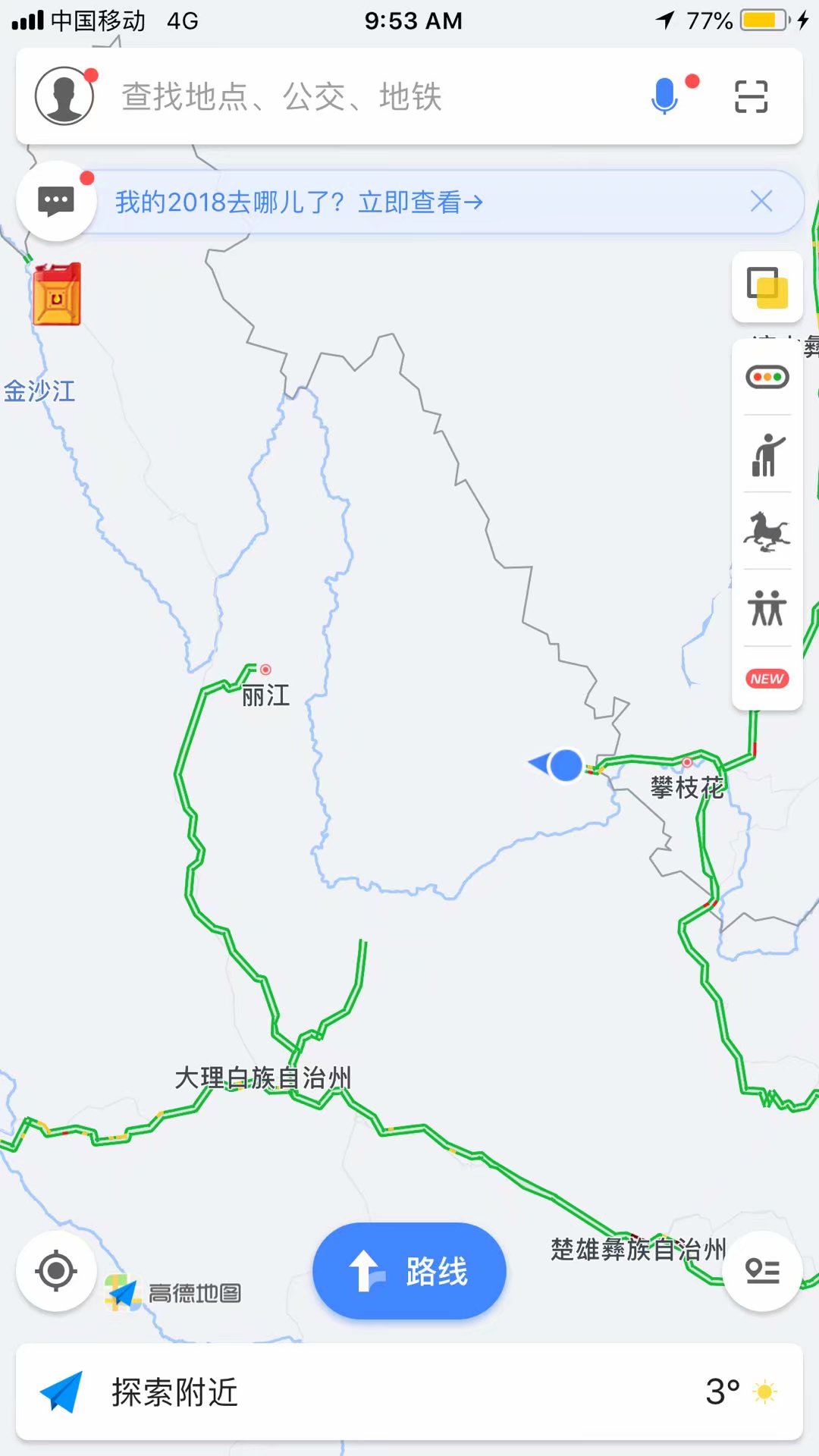
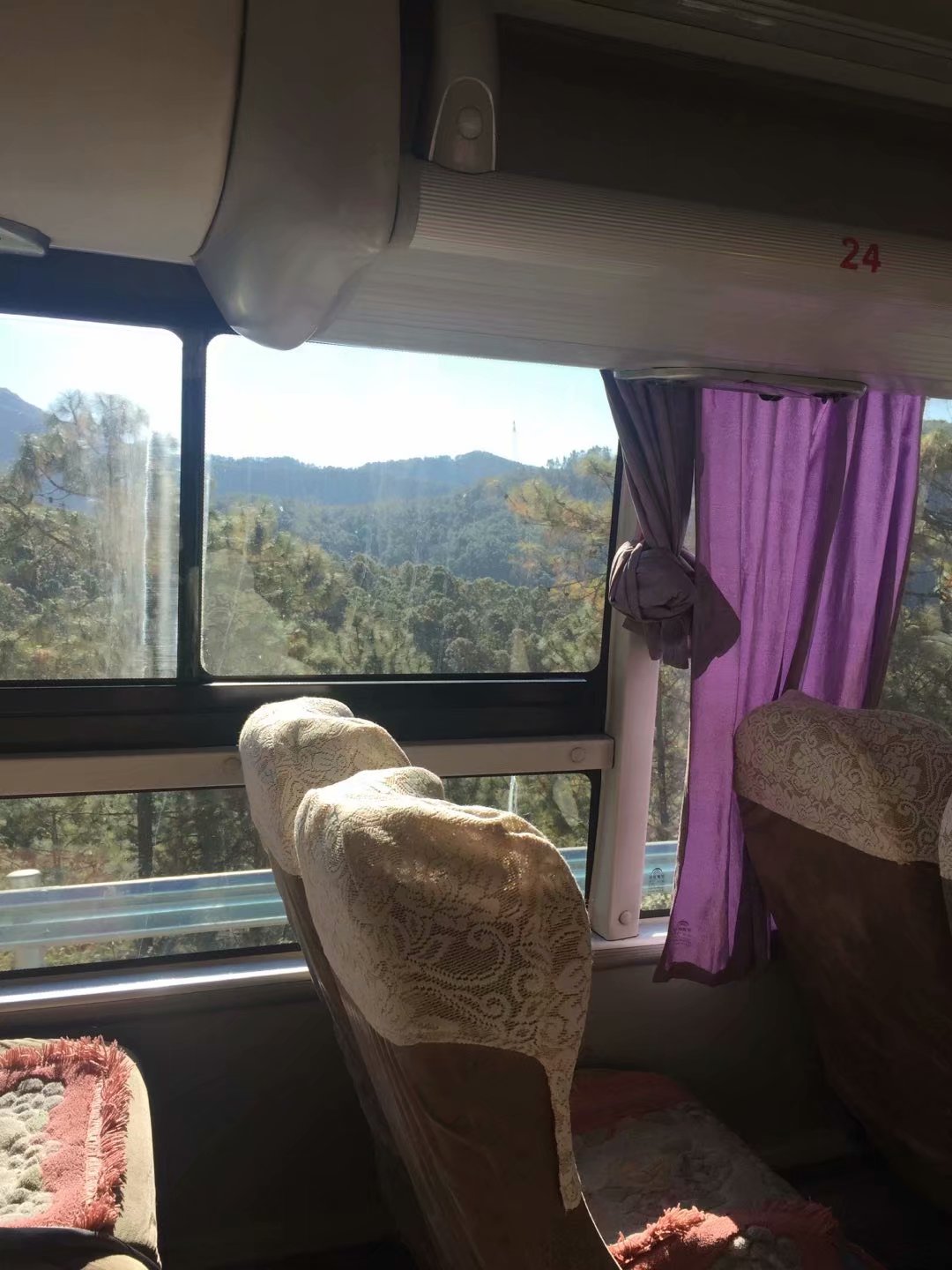
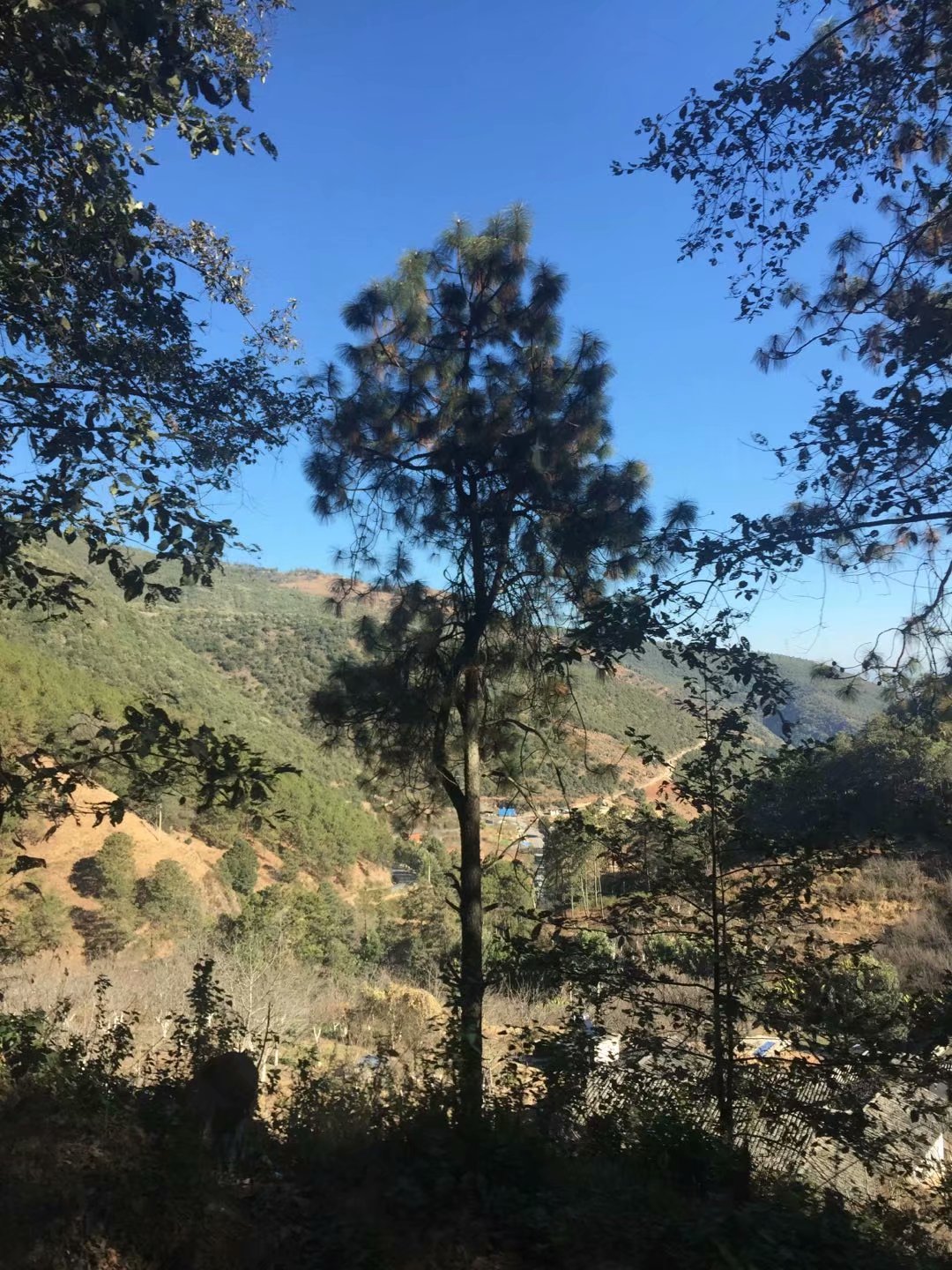

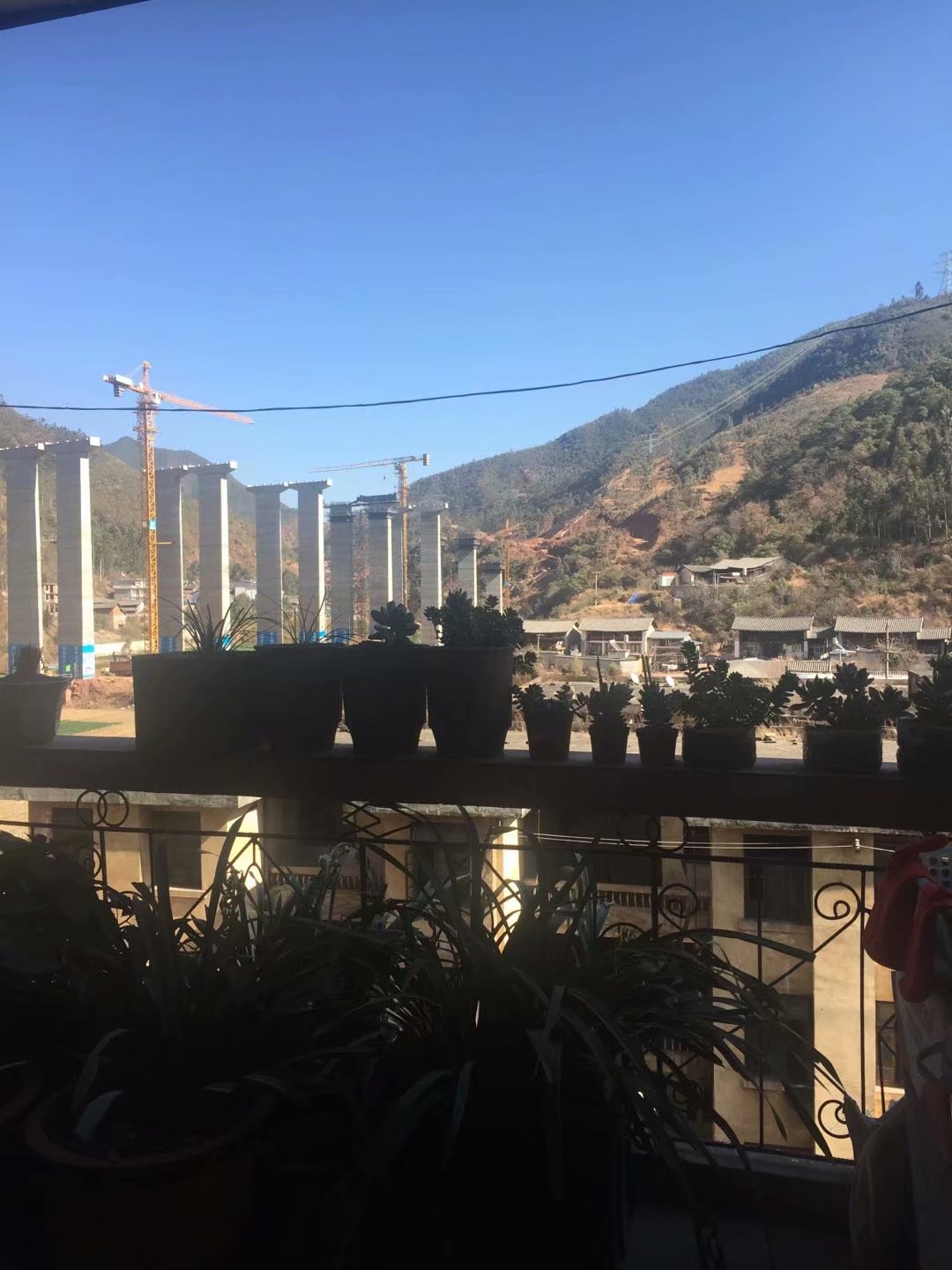
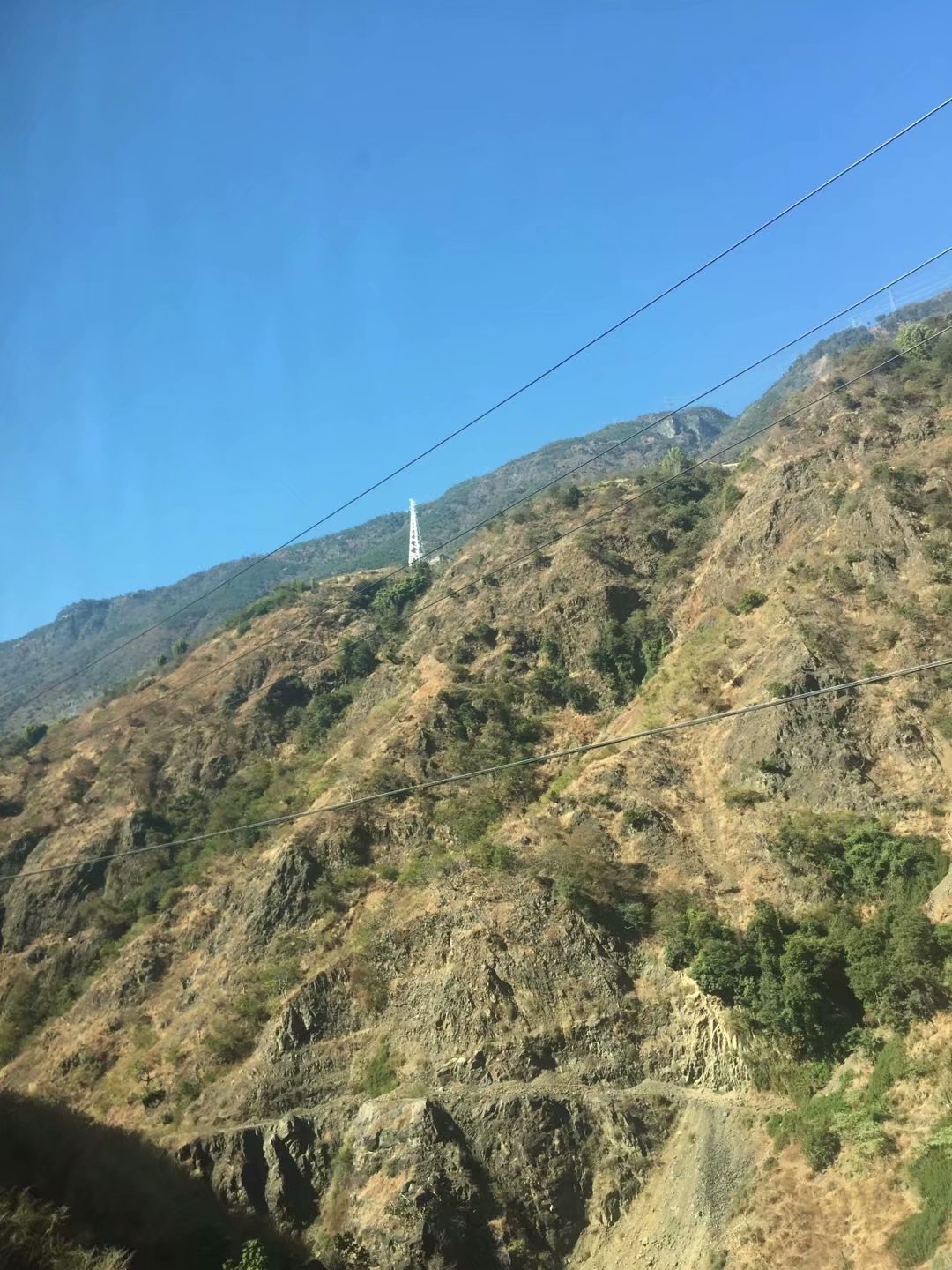
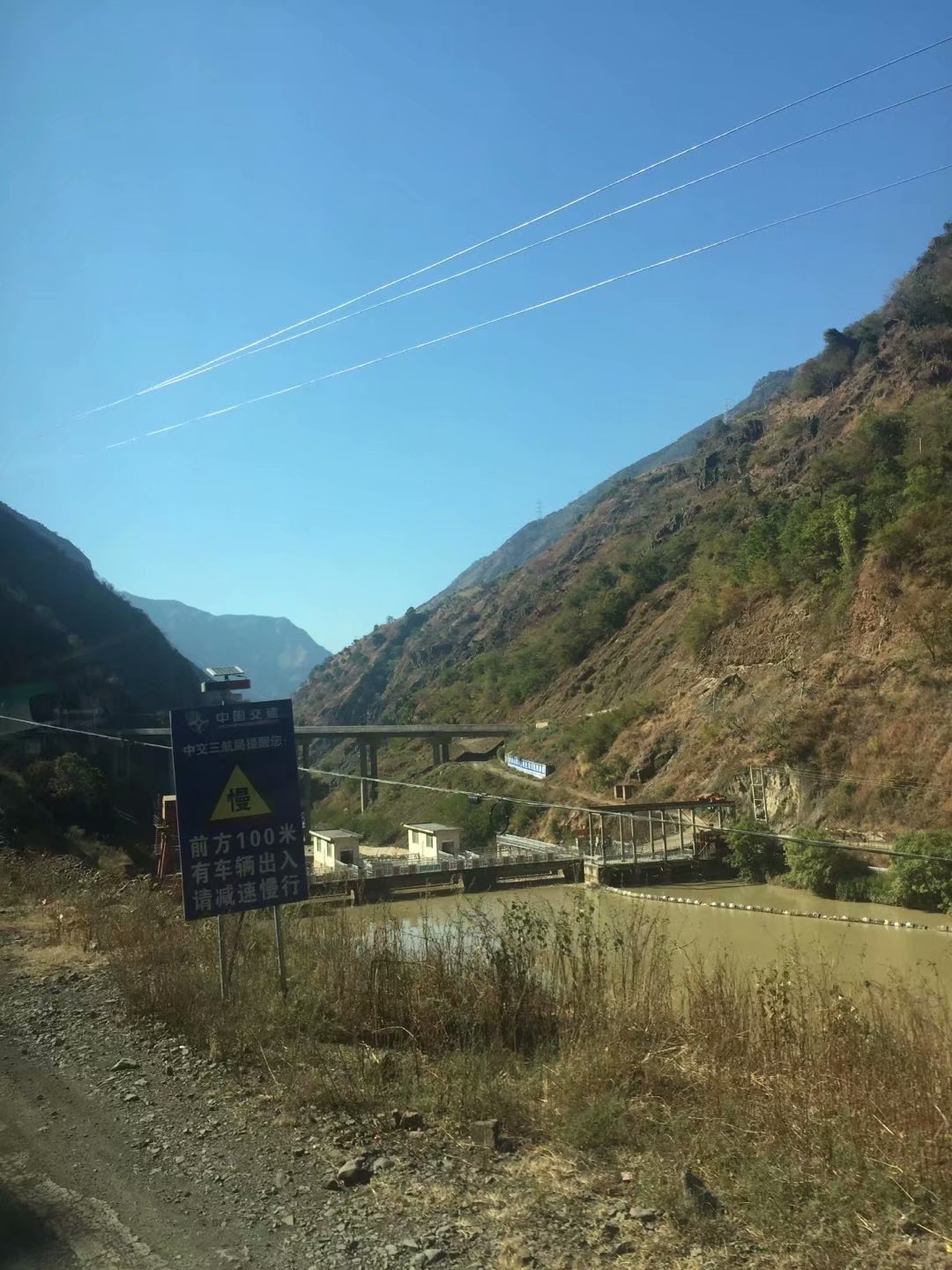
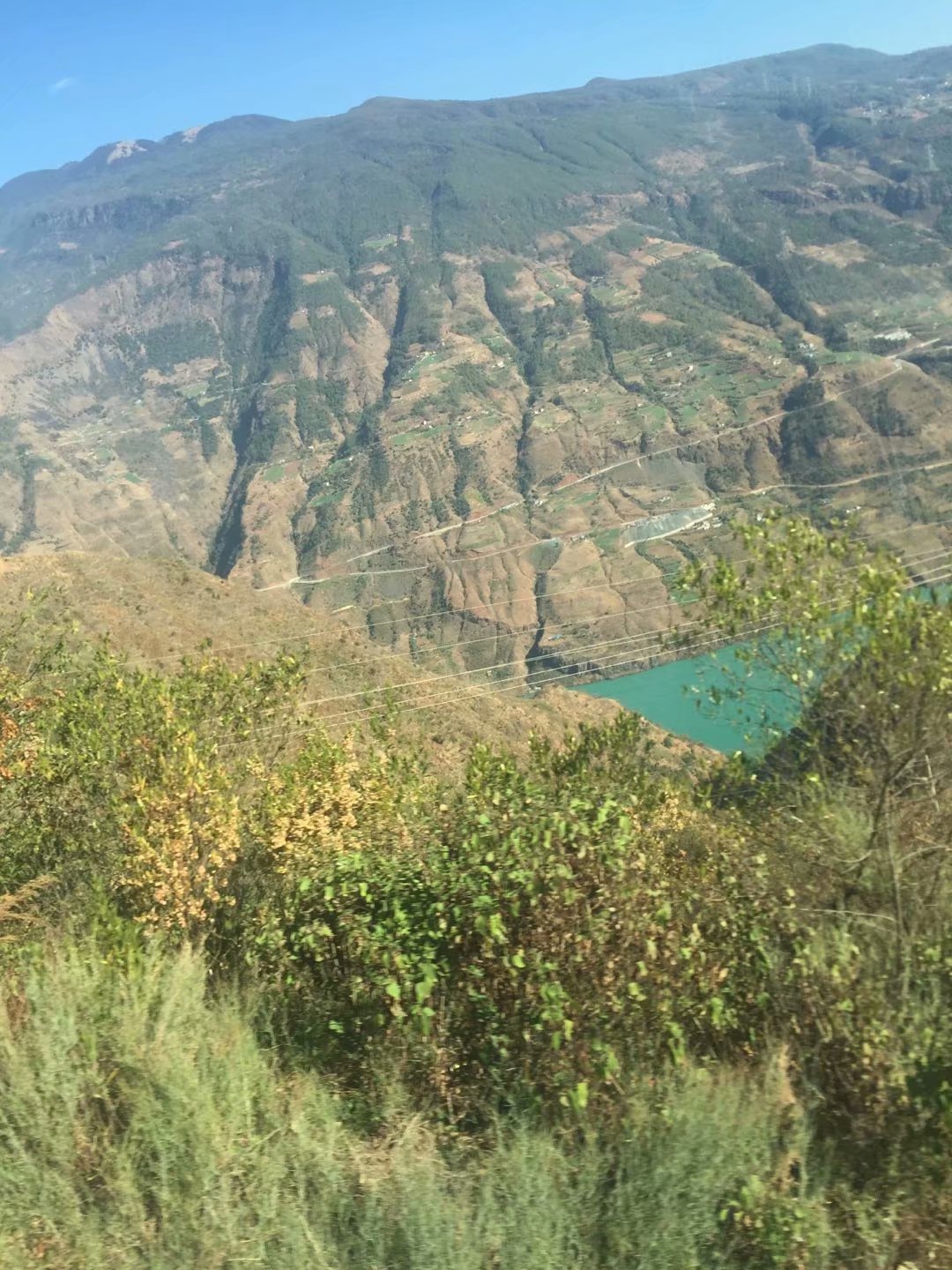
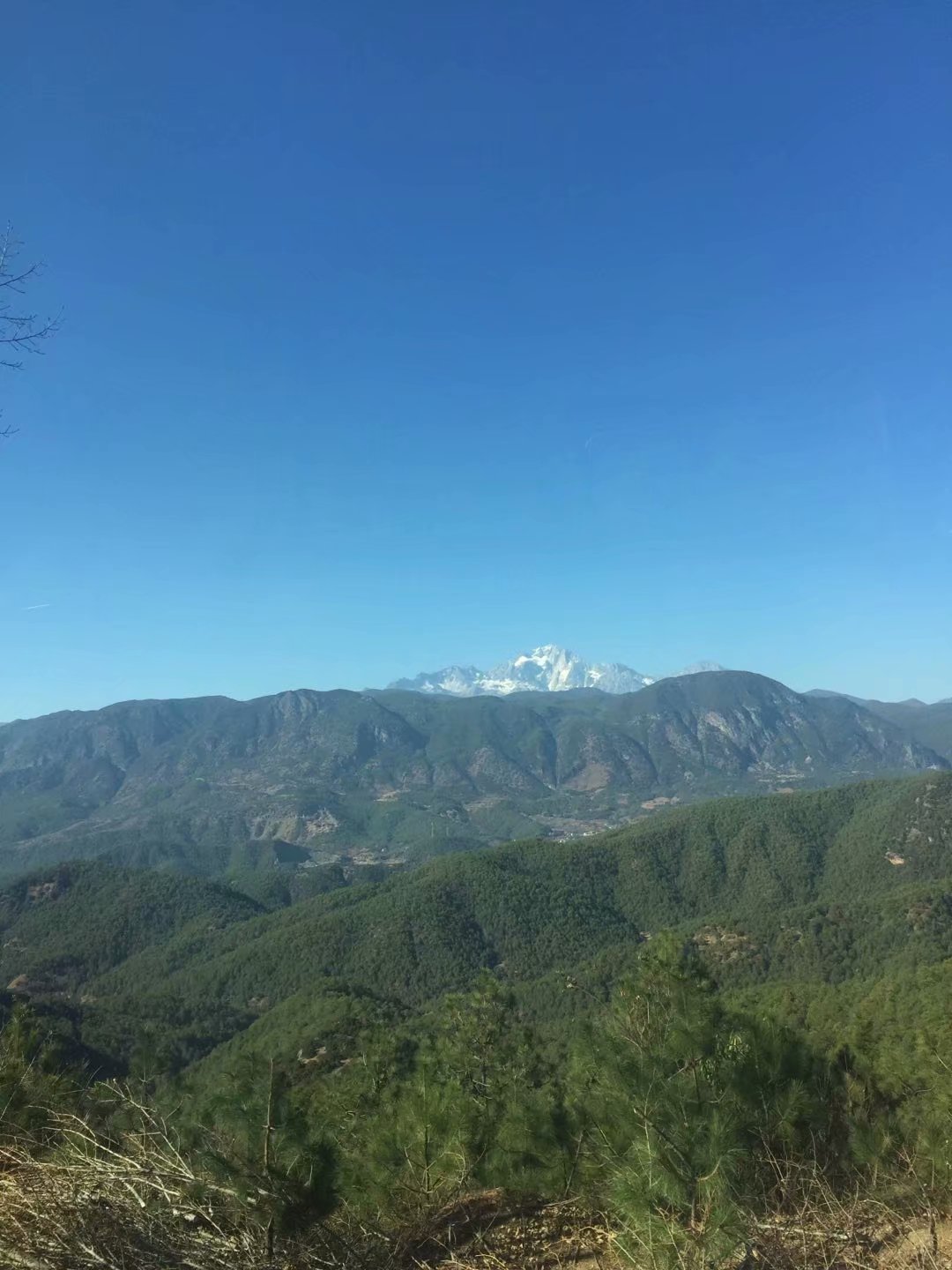
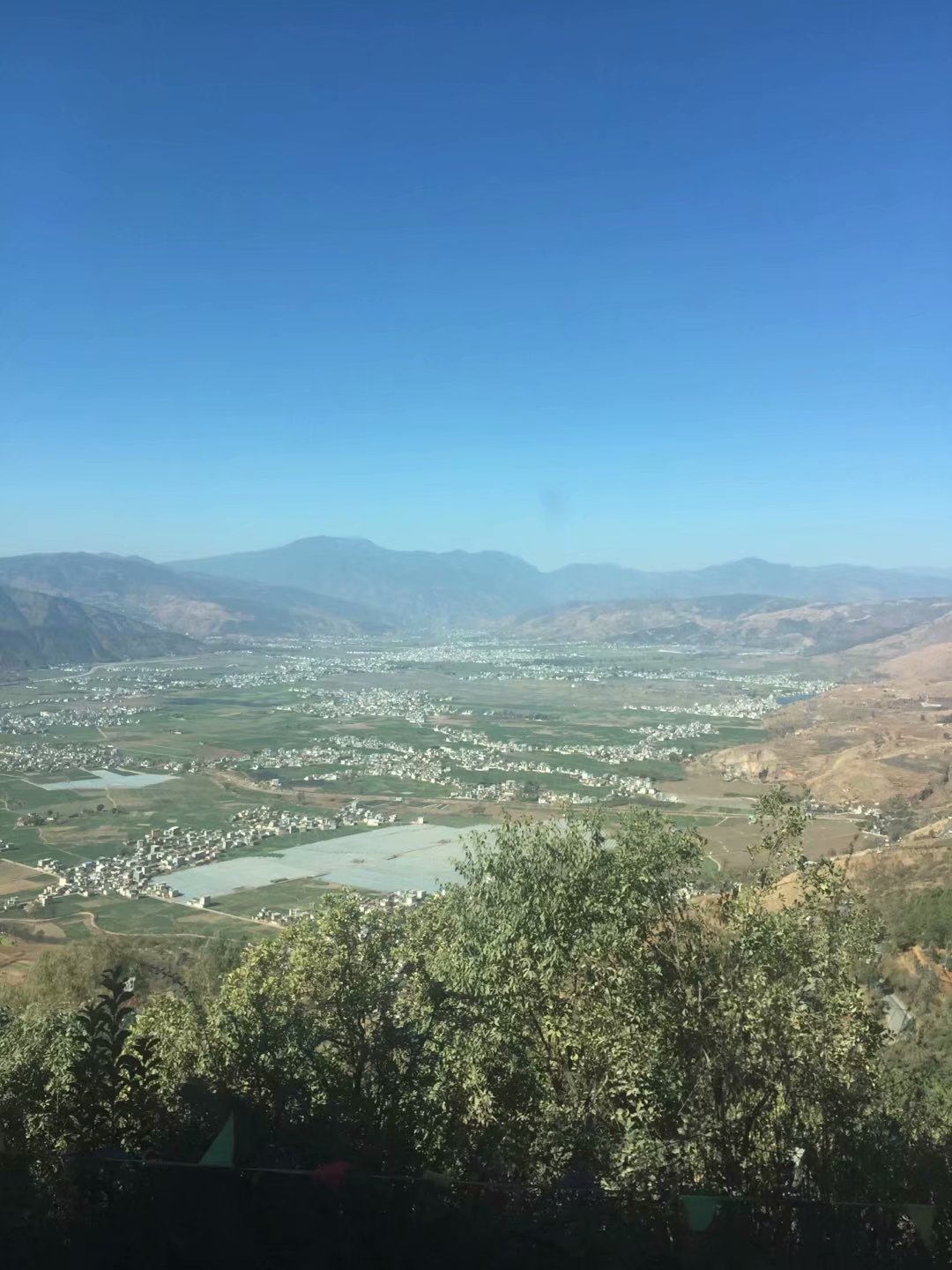
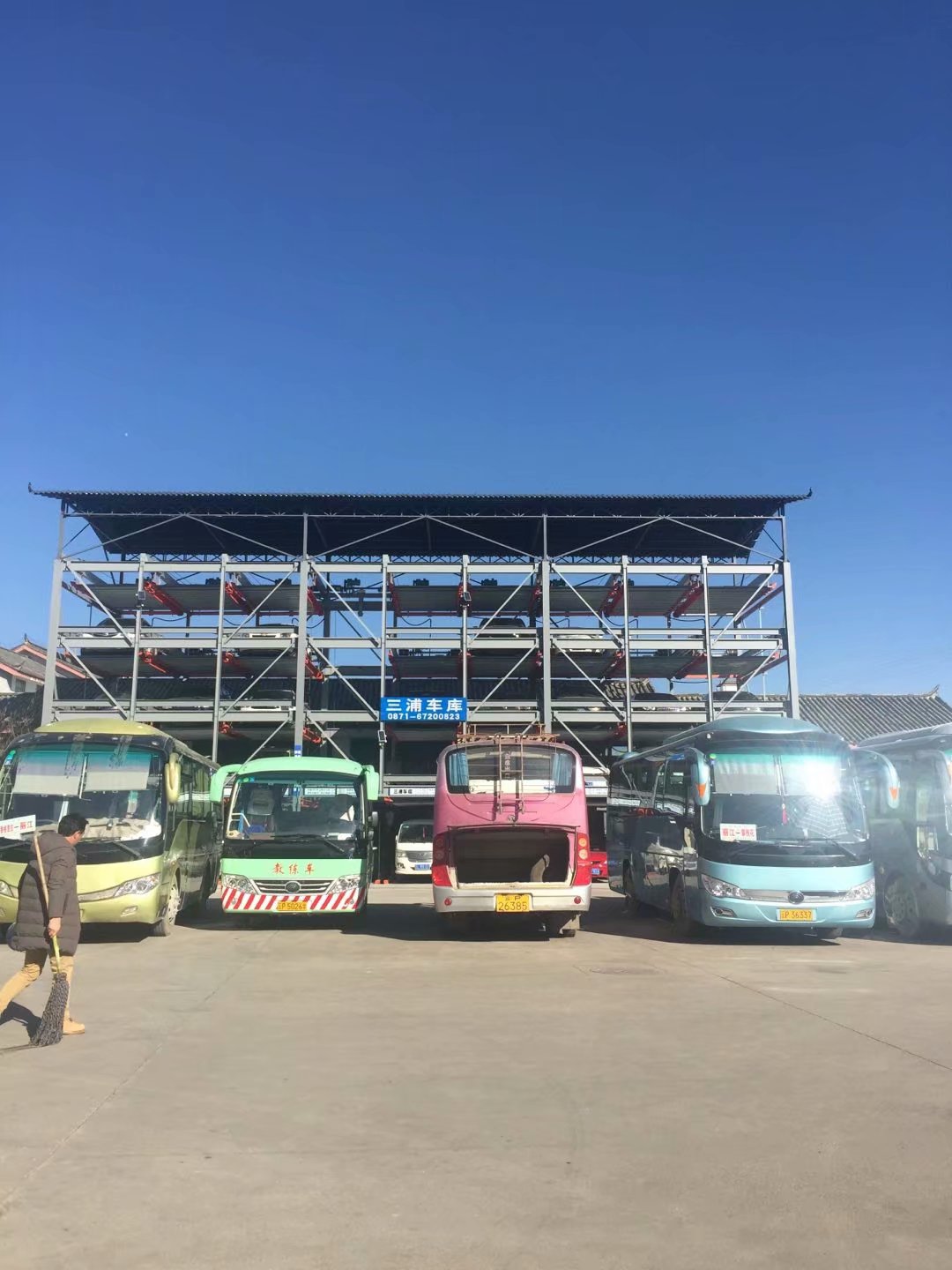






Comment